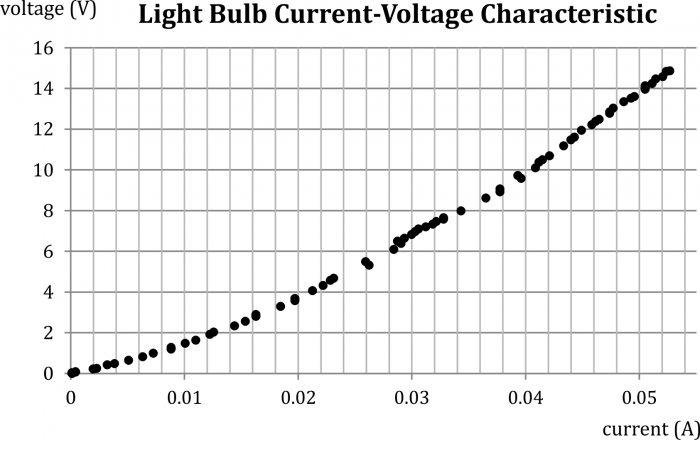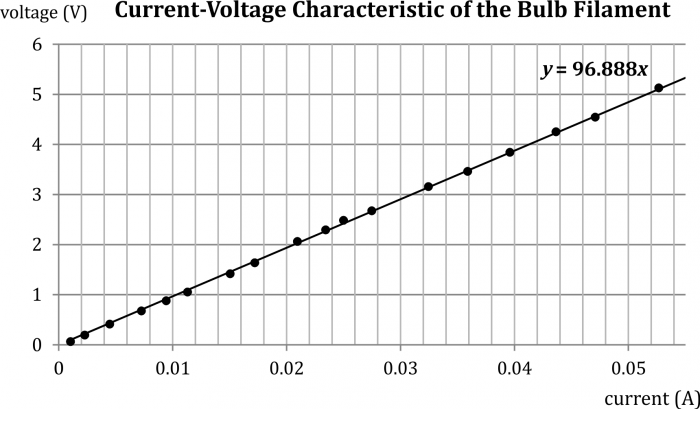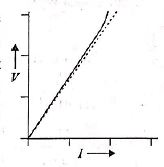The most likely reason for the departure from linearity is self heating which increases the temperature of the metallic? conductor which results in an increase in its resistance.
In this link, Light Bulb Current-Voltage Characteristic, there is described an experiment in which the voltage-current characteristics were found for a light bulb,

and a light bulb with the glass bulb removed and with the filament submerged in water to try and keep its temperature constant,

This seems to show that immersing the filament in water does affect the characteristic.
My only reservation about this experiment is that water is also a conductor and that might have affected the results?



